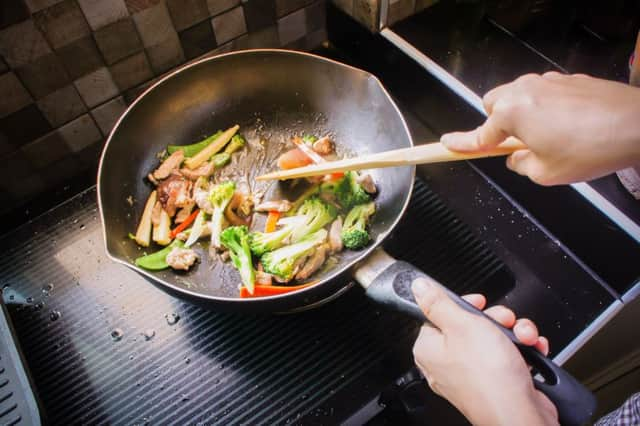Cooking at high heat '˜may increase' heart disease risk


Heating food to more than 150 degrees centigrade can form toxic by-products, known as neo-formed contaminants (NFCs), which experts believe could explain why the disease is more common in communities where cooking is typically done at high heats.
Frying foods at a high heat is particularly problematic because the oils can form trans-fatty acids, which are banned in many countries.
Advertisement
Hide AdAdvertisement
Hide AdScientists have been trying to discover why some ethnic groups are more likely to develop heart disease, as previous studies show men born in Pakistan have a 62 per cent greater chance of dying of a heart attack than people born in England and Wales.
Professor Raj Bhopal, a public health expert from Edinburgh University, said the findings could make a “real impact” on rates of heart disease in a generation, if proven.
However heart campaigners urged caution on interpreting the findings, as factors such as different diets and genetics could also play a role.
Prof Bhopal said: “We still don’t know why some ethnic groups are more susceptible to heart disease and this could be part of the answer to this mystery.
“It is exciting because if our findings are proven to be correct, we could make a real impact on rates of heart disease within a generation.”
The research could have implications for Scotland, where heart disease rates are among the highest in the world.
Examining previous studies, the team found that cooking methods such as frying and roasting, which are common in South Asian countries, created high levels of trans-fatty acids, especially if the oil is reused.
In China – where heart disease rates are lower – cooking involves steaming and boiling, which does not create the same level of toxic products, the study published in the Nutrition journal said.
Advertisement
Hide AdAdvertisement
Hide AdTracy Parker, of the British Heart Foundation (BHF), said: “The researchers suggest that cooking food at high temperatures could increase the risk of heart disease by creating toxic products called NFCs, which early studies show could increase heart disease risk. But there is currently no evidence to support that theory.”